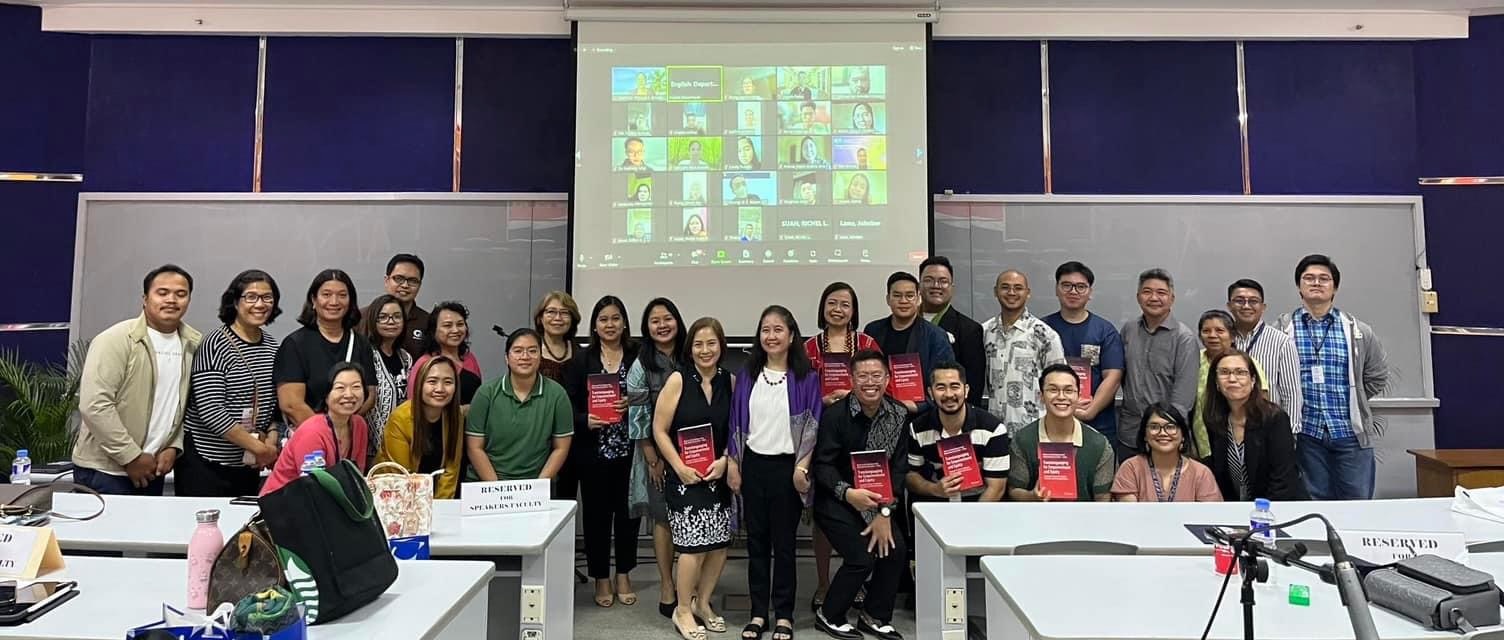'Translanguaging for Empowerment and Equity' book launch
23 March 2024 was a twofold success for the English Department of Ateneo de Manila University as it held a back-to-back lecture and book launch on translanguaging in multilingual contexts. “Translanguaging in Multilingual Local and Global Spaces'' was a talk by Dr Robin Atilano De Los Reyes, a Professor at the Ateneo de Zamboanga University, which discussed how translanguaging is a huge part of everyday life not only in the Philippines but also in a more global public context – may it be in multicultural classrooms or other shared spheres such as news broadcasts, crime investigation, or even in religious practices such as Catholic homilies. The talk primarily gave a summary of the Springer book launched after which was co-edited by Ateneo de Manila University’s very own, Dr Maria Luz Elena N Canilao, and Dr De Los Reyes titled, Translanguaging for Empowerment and Equity: Language Practices in Philippine Education and Other Public Spaces.
The book, while given a summary by Dr De Los Reyes in his lecture, gives emphasis on how translanguaging, as an everyday language practice, is emancipatory, gives agency and provides equality for multilingual speakers all around the world. Moreover, the book is an assemblage of research works by Filipino scholars on the translanguaging practices in Philippine education and in diverse scopes of communication mentioned above. The launch consisted of speeches not only from the editors but also from the contributors themselves. Dr. Ruanni Tupas, a Filipino scholar at the University College London, who wrote the foreword and introduction of the book, gave a word on how the book gives light on translanguaging as a “disruptive” and at the same time “transformative” concept and language practice. The contributors also delivered short speeches on particular sentences or a paragraph from their research which captured the essence of their chapters.
The three important parts of the book are the following: a) Philippine Education, b) Other Public Spaces, and c) Translanguaging and Promoting Linguistic Human Rights. The first part discussed translanguaging in multilingual classrooms specifically in the concerns of pedagogy, assessment, agency and transgressive schoolscapes. The second part, on the other hand, delved into translanguaging that takes place beyond the classroom such as in news broadcasting, trial courts and Catholic homilies. The third and last part tackled how translanguaging may aid in the promotion of linguistic human rights, specifically making assessment fair for multilingual speakers and asserting the right to use translanguaging. It is also under this section that the co-editors wrote their summary and conclusion regarding the role and functions of translanguaging in the various local and global contexts pursued by the researchers.
The lecture, which established the ubiquity of translanguaging in many multilingual contexts, and the launching of the book, which was comprised of the contributors’ sharing of the insights and core of their research, are both encouragements for teacher and scholars in and beyond linguistics to rethink, reflect and recalibrate their teaching and learning processes and languaging practices, and discover how else translanguaging is employed within different multilingual settings. The research’s grounding on the Philippine multilingual context may also shed light on the need for teachers and scholars from other settings to write about their realities of translanguaging. One only needs to read the newly released book to know and understand how and where to begin.
Article by Keische Mae D. Enciso


